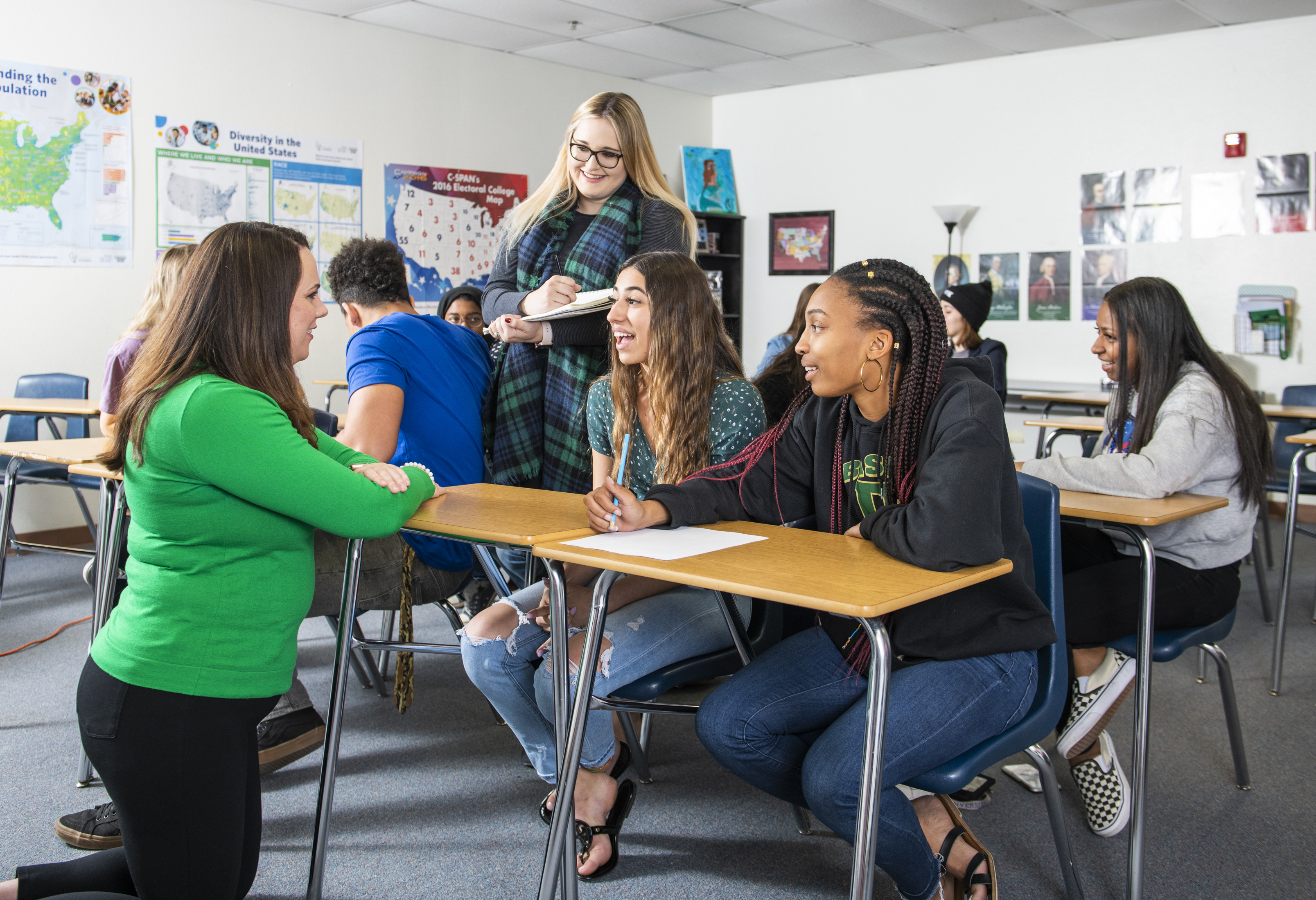5 Questions That Help You Get to Know Your High School Students
As a high school teacher, you have a lot of students and not much time with each class. That makes getting to know your students a tall order. But you’re up for the challenge!
These five prompts can help you connect with your students in meaningful — and feasible — ways. They are designed to help you co-design and build culture through storytelling. Why storytelling? Stories teach us about life, ourselves, and others, creating a unique way for students to develop empathy, understanding, and appreciation for others. Plus, “yes” or “no” answers are not possible with these prompts, making this a participatory experience for students.
Try these questions out loud with the whole group, in small group discussions, or anonymously through a website like Poll Everywhere, via video using Flipgrid, or with pen and paper.
Reminder: Be prepared to answer these questions yourself!
1. What Problem Do You Want to Solve and Why?
Instead of asking students what they want to be when they grow up, ask them what challenges they are most passionate about solving and why. You can use this question as an opportunity to share possible careers that students might not be familiar with (e.g., forensic entomologist) and how your class can lead them on a path to solving their suggested problems.
2. If You Could Invent Anything, What Would It Be?
Coming up with an invention isn’t about market opportunity — it’s about creativity and priorities. What challenges are your students trying to solve with their inventions? What frustrations, passions, or hobbies do their inventions speak to?
3. What Is a Class You Wish You Could Take?
Instead of answering “What do you want to learn about?,” this question pushes students and could even be turned into a civic engagement opportunity. If students are extremely excited about a course, why not make it happen? And what would be the steps to do so?
4. If You Were a Musician, What Would You Name Your Debut Album?
How do your students want to be seen by others? What personal attributes are they trying to communicate? This question could illuminate those ideas. Another version of this could be asking, “What would the title of your autobiography be?”
5. What Should Older Generations Know About Teenagers Today?
This is a chance to dig into what your students are thinking about and debunk misconceptions about their generation.











